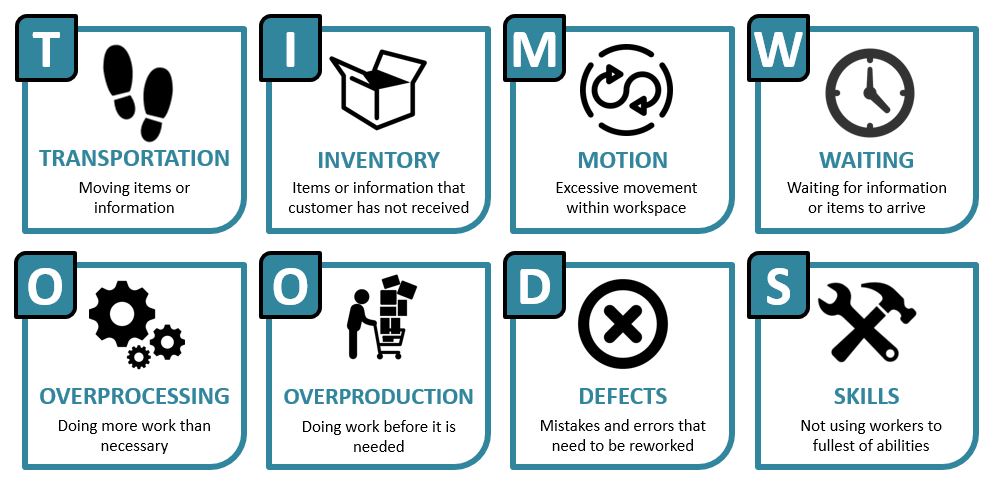Introduction: The Parallels Between Running and Business
The metaphor of the long-distance runner is a powerful one, especially when applied to the world of business. Both marathon runners and entrepreneurs embark on journeys marked by intense personal challenges, where the path is often solitary, and the destination uncertain. Founders and business leaders, much like long-distance runners, are driven by an inner vision — a deeply personal goal that is often misunderstood by those around them. While this journey can be exhilarating and fulfilling, it is also profoundly lonely.
I began my entrepreneurial journey at 18, while still in college and in need of funds. Unlike my classmates, who were focused on earning degrees that would lead to jobs, I was determined to carve out a different path. My decisions were guided by an inner drive, bolstered by reading biographies of successful entrepreneurs and seeking whatever scant advice I could find. Through my own experiences with this loneliness, I will explore the concept of the entrepreneurial marathon and the isolation that often accompanies it. By drawing parallels with the experiences of long-distance runners, I aim to shed light on the unique challenges founders face, the reasons behind their isolation, and strategies for navigating this loneliness. Understanding this aspect of the entrepreneurial journey allows us to better appreciate the emotional and psychological resilience required to succeed in business.
The Nature of the Entrepreneurial Journey
Entrepreneurship is often romanticized as a glamorous pursuit, where visionary leaders effortlessly build empires and change the world. The reality, however, is far more complex. The path to creating a successful business is fraught with challenges, risks, and setbacks. Entrepreneurs must navigate a world filled with uncertainty, where every decision could either make or break their venture. This constant pressure often leads to a profound sense of isolation, as founders struggle to stay focused on their vision while managing the day-to-day demands of running a business.
Like a long-distance runner, an entrepreneur must maintain relentless focus and determination. The journey is solitary because the vision that drives them is unique, and few others share the same level of passion or commitment. This isolation is further compounded by the fact that many entrepreneurs are trailblazers, venturing into uncharted territory without a roadmap. Finding mentors or peers who truly understand these challenges can be difficult, adding to the sense of being alone.
The Loneliness of Leadership
One of the primary sources of loneliness for entrepreneurs is the burden of leadership. As the driving force behind their businesses, founders are responsible for making critical decisions that impact the lives of their employees, customers, and stakeholders. This responsibility can be overwhelming, especially when there is no one else to share the burden.
Leadership inherently requires a degree of detachment. Founders must maintain a clear vision and make decisions in the best interest of the company, even when those decisions are unpopular or difficult. This necessary detachment can create a sense of distance between the leader and their team, as employees may not fully understand the rationale behind certain decisions. The weight of this responsibility often leads to feelings of isolation, as founders struggle to balance their personal and professional lives while staying true to their vision.
The Emotional Toll of Entrepreneurship
The emotional toll of entrepreneurship is another significant factor contributing to the loneliness of business leaders. Building a business is a journey filled with highs and lows, and entrepreneurs often experience a rollercoaster of emotions as they navigate these challenges. The fear of failure, the pressure to succeed, and the constant need to innovate create significant stress and anxiety.
This emotional burden is exacerbated by the expectation that entrepreneurs must project confidence and optimism to their team and stakeholders, even when they are struggling internally. This leads to emotional isolation, as founders feel unable to share their fears and vulnerabilities. The pressure to maintain a strong facade prevents them from seeking the support they need, further deepening their sense of loneliness.
The Role of Innovation and Vision
Innovation lies at the heart of entrepreneurship, and the unique vision of the founder is often the driving force behind a business’s success. However, this vision can also be a source of isolation. Entrepreneurs are frequently propelled by a deep belief in their ideas, even when those ideas are unconventional or ahead of their time. This can create a sense of alienation, as others may not fully understand or appreciate the founder’s vision.
Bringing an innovative idea to life is often a lonely process. Founders must constantly push the boundaries of what is possible, requiring a high degree of self-motivation and resilience. They must stay committed to their vision, even in the face of skepticism or opposition. The loneliness of this journey is intensified by the solitary nature of innovation, which often demands long periods of focused, solitary work as founders immerse themselves in the creative process.
The Lack of Peer Support
A key challenge faced by entrepreneurs is the lack of peer support. Unlike traditional career paths, where individuals can rely on colleagues or mentors for guidance and advice, entrepreneurship can be a solitary pursuit. Founders are often isolated from their peers, as they focus on building their own businesses and may not have the time or opportunity to connect with others on a similar journey.
This lack of peer support can lead to a sense of loneliness, as founders feel they have no one to turn to for advice or encouragement. The competitive nature of the business world also makes it difficult for entrepreneurs to form meaningful connections, as they may view their peers as potential rivals rather than allies. This isolation can be particularly challenging for first-time entrepreneurs, who may lack the experience and confidence needed to navigate the complexities of running a business.
The Impact on Mental Health
The loneliness experienced by entrepreneurs can significantly impact their mental health. In my mid-forties, I began taking early morning walks with some neighbors, sharing jokes and laughter. These walks provided a colorful start to my days, which were otherwise filled with the “grey” challenges of decision-making, manufacturing issues, and difficult situations. The daily walks gave me the energy and zest needed to tackle the rest of my day. I also realized that when a crisis hit my business, it would always take time to resolve. To cope with the stress, I started hiking each evening after work, returning home physically tired and ready for a good night’s sleep.
Studies have shown that entrepreneurs are more likely to experience mental health issues such as depression, anxiety, and burnout compared to the general population. The constant pressure to succeed, combined with the isolation and emotional toll of entrepreneurship, can take a serious toll on an individual’s well-being. The stigma surrounding mental health in the business world also contributes to the loneliness experienced by entrepreneurs. Founders may feel that admitting to struggles with their mental health could be seen as a sign of weakness or failure, preventing them from seeking the help they need and exacerbating their sense of isolation.
Strategies for Coping with Loneliness
Despite the challenges of loneliness in entrepreneurship, there are strategies that founders can employ to navigate this aspect of the journey. One of the most important steps is building a strong support network. This network can include mentors, peers, and advisors who provide guidance, encouragement, and a sounding board for ideas. By surrounding themselves with people who understand the challenges of entrepreneurship, founders can reduce their sense of isolation and gain valuable insights and advice.
Another crucial strategy is prioritizing self-care and mental health. Entrepreneurs must recognize the importance of taking care of their well-being, even amidst the demands of running a business. Practices such as mindfulness, exercise, and setting boundaries between work and personal life are essential. By prioritizing self-care, founders can build the resilience needed to navigate the challenges of entrepreneurship and reduce the impact of loneliness on their mental health.
Entrepreneurs can also benefit from seeking out communities or networks of like-minded individuals. Whether through industry associations, startup incubators, or online forums, connecting with other entrepreneurs provides a sense of camaraderie and shared experience. These communities offer valuable opportunities for networking, collaboration, and mutual support, helping to alleviate the loneliness of the entrepreneurial journey.
The Role of Vulnerability and Authenticity
One of the most powerful ways for entrepreneurs to combat loneliness is by embracing vulnerability and authenticity. While it can be tempting to maintain a strong facade, being open about the challenges and struggles of entrepreneurship can create deeper connections with others. By sharing their experiences and emotions, founders can foster empathy and understanding within their teams and among their peers.
Embracing vulnerability also allows entrepreneurs to seek help when needed, whether through therapy, coaching, or simply talking to a trusted friend or mentor. Recognizing that it is okay to ask for support is crucial in overcoming the isolation of entrepreneurship. Authenticity in leadership builds trust and loyalty within a team, as employees are more likely to connect with a leader who is open and honest about the realities of the business journey.
The Importance of Purpose and Meaning
For many entrepreneurs, the sense of purpose and meaning that comes from building something from the ground up is a powerful antidote to loneliness. The knowledge that their work is making a difference in the world provides a deep sense of fulfillment, even in the face of challenges and setbacks. By staying connected to their core values and mission, entrepreneurs can find the inner strength needed to persevere through difficult moments.
Purpose can also serve as a guiding light, helping founders stay focused on their vision even when the journey feels overwhelming. By keeping their eyes on the bigger picture, entrepreneurs can maintain a sense of direction and motivation, reducing the impact of loneliness and isolation.
Conclusion: Embracing the Journey
The loneliness of the long-distance runner in business is a reality that many entrepreneurs face. The journey of building a business is filled with challenges, risks, and moments of profound isolation. However, it is also a journey of growth, self-discovery, and personal fulfillment. By understanding the sources of loneliness and employing strategies to cope with it, entrepreneurs can navigate the emotional landscape of entrepreneurship with resilience and grace.
Ultimately, the loneliness of the entrepreneurial journey is not something to be feared or avoided but embraced as part of the process. Like the long-distance runner, entrepreneurs must find strength in their solitude, drawing on their inner resources to push through difficult moments. By staying true to their vision, building a strong support network, and prioritizing their mental health, founders can turn the loneliness of entrepreneurship into a source of inspiration and empowerment.
In the end, the journey of the entrepreneur, like that of the long-distance runner, is not just about reaching the finish line. It is about the personal growth, resilience, and sense of purpose that come from pursuing a vision. It is about embracing the challenges and finding meaning in the journey itself.








